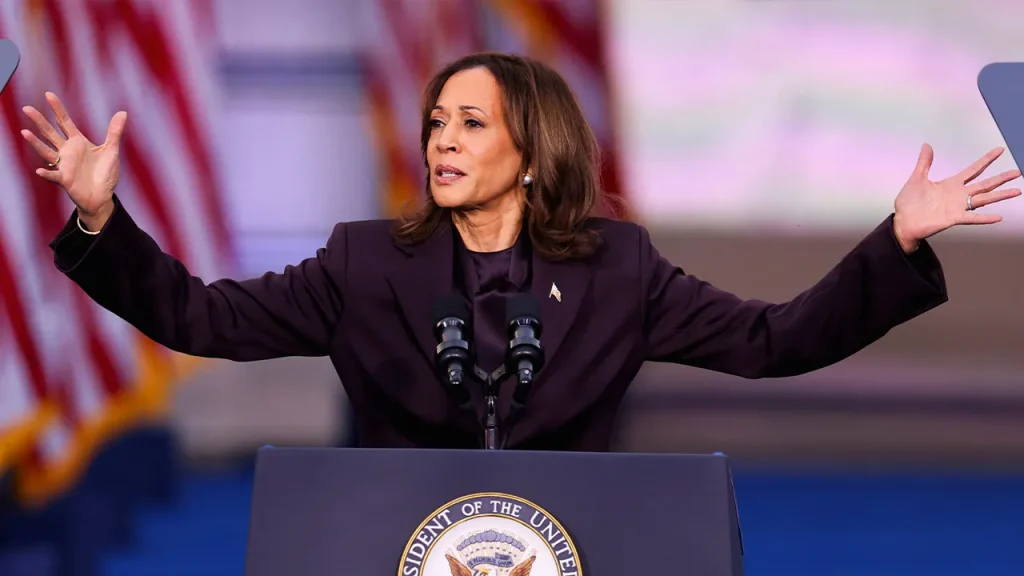Harris’s Unrealized Plans for the White House: The Story Behind “107 Days”
In her candid new memoir “107 Days,” former Vice President Kamala Harris pulls back the curtain on a presidential campaign that held great promise but ultimately fell short. Among the most revealing disclosures is her previously undisclosed selection of Denis McDonough as her White House chief of staff—a choice she had finalized in early October 2024, more than a month before Election Day. This behind-the-scenes detail offers a glimpse into the confident transition planning that was quietly unfolding within her campaign. “We’d planned for everything, it seemed, except the actual result,” Harris writes with poignant reflection, capturing the stark disconnect between her team’s expectations and the electoral outcome that followed on November 5th.
Harris’s description of McDonough provides insight into why she valued him as a potential right-hand in the White House. She portrays him as a “deeply caring man who doesn’t mince words,” qualities she believed would help him “run a productive and disciplined West Wing.” Their professional relationship had meaningful roots, beginning with one of her first public events as Vice President during the height of COVID, when they delivered heart-shaped cookies to nurses at a VA hospital on Valentine’s Day. McDonough’s background impressed Harris—the son of Irish immigrants, one of eleven children, a former teacher in Belize before entering government service. His extensive experience in the Obama administration as chief of staff and in national security, followed by his role as Secretary of Veterans Affairs under President Biden, had given him the seasoned perspective Harris sought for her own administration.
The final chapters of Harris’s memoir paint a vivid portrait of election night, when carefully laid plans gave way to a gradually dawning reality. Her team had war-gamed numerous scenarios—Trump claiming premature victory in Pennsylvania, a narrow Harris win triggering violent rejection from Trump supporters, or a protracted vote count lasting days. “But we didn’t expect to lose,” Harris admits with striking frankness. The emotional weight of that unexpected outcome is captured in small, human details, such as when her social secretary, Storm Horncastle, quietly removed all signs of the anticipated celebration, painstakingly peeling “Madame President” icing off cupcakes and repurposing them as “innocuous comfort food” for a campaign team processing disappointment rather than triumph.
The memoir reveals how thoroughly Harris’s team had prepared for a transition to power, making the electoral defeat all the more jarring. The contrast between meticulous preparation and unexpected outcome creates a narrative tension that runs throughout the book’s final sections. Harris describes a campaign that had contingency plans for almost every scenario except the one that ultimately unfolded: Donald Trump securing a decisive victory with 312 electoral votes to her 226. The 107 days that defined her campaign—the shortest presidential campaign in modern American history following President Biden’s withdrawal on July 21, 2024—had not been enough “to accomplish the task of winning the presidency,” as Harris herself acknowledges with clear-eyed assessment.
McDonough’s selection as Harris’s chief of staff choice represents more than just an administrative decision—it symbolizes the specific vision Harris had for her presidency. By choosing a veteran of both the Obama White House and Biden administration, Harris signaled continuity with Democratic governance while also asserting her own leadership style. McDonough’s reputation for discipline and directness aligned with Harris’s apparent desire for a well-ordered West Wing that could effectively implement her policy agenda. Though this working relationship never materialized in the White House, Harris’s detailed account of her selection process offers a window into her decision-making approach and the type of leadership team she hoped to assemble.
The emotional resonance of “107 Days” comes from these intimate glimpses behind the campaign facade, where carefully constructed public images give way to human vulnerability. Harris’s description of election night—with champagne bottles hidden away and celebratory decorations hastily removed—captures the disorienting shift from anticipated victory to processing defeat. Yet through her telling, Harris maintains the perspective of someone who understood the historic nature of her candidacy while acknowledging its limitations. Her 107-day sprint from unexpected nominee to defeated candidate forms a unique chapter in American political history, one she has now documented with surprising openness about both the plans that were made and the presidency that might have been.














